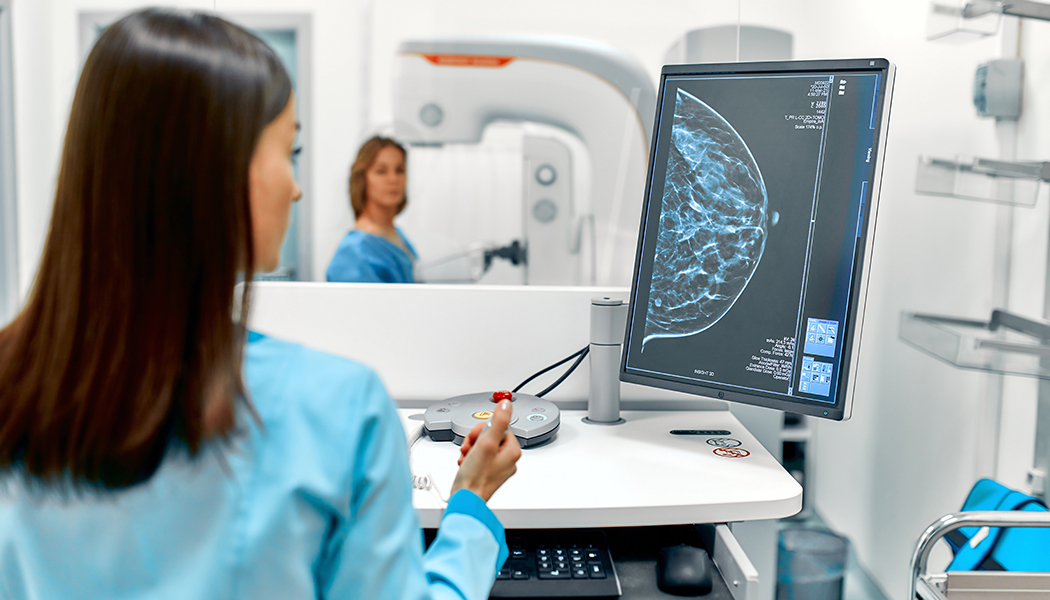Controlling the Uncontrollable: HER2 Breast Cancer

Tragically, the likelihood of experiencing metastasis, or cancer that spreads to other parts of the body, is high amongst these patients. Understanding and preventing metastasis is crucial to increasing the survival rates of this disease.
Thankfully, National Foundation for Cancer Research (NFCR)-funded researcher Dr. Rakesh K. Jain and his team are dedicated to exploring this phenomenon and recently unearthed a game-changing discovery.
Their mission: HER2
Dr. Jain and his team knew that genes contain the recipes for various proteins required for healthy cells to function properly and that some genes and proteins can influence how breast cancer behaves and responds to treatment. They were particularly interested in exploring how to control and inhibit metastasis in one particular gene related to breast cancer, the HER2 gene.
The HER2 (human epidermal growth factor receptor 2) gene makes HER2 proteins, which are receptors on breast cells. Typically, HER2 receptors help control how a healthy breast cell grows, divides, and repairs itself. But in about 10% to 20% of breast cancers, the HER2 gene doesn’t work correctly and makes too many copies of itself (known as HER2 gene amplification). These extra HER2 genes tell breast cells to make too many HER2 receptors which makes breast cells grow and divide in an uncontrolled way.
Patients with metastatic HER2+ breast cancer often experience treatment resistance, disease recurrences, and metastases. Dr. Jain and his team believed that by modifying the tumor framework and increasing oxygenation in the tumor, it might be possible for an existing medication to improve the outcome of radiotherapy and inhibit disease progression in a highly metastatic HER2+ breast cancer.
Their findings
The team established a metastatic HER2+ breast cancer line and used it to generate a similar environment in mice. Three days after tumor implantation, Dr. Jain and his team administered seven days of Losartan, a drug mainly used to treat high blood pressure. In some mice, the research team followed the seven days of Losartan with 20 Gy single dose local irradiation on day 10. In a third group, they followed the seven days of Losartan with 20 Gy fractionated irradiation on days 10-14.
For each group, the researchers analyzed the tumor-growth delay, development of metastases, survival rates, tumor density, and oxygen levels in the tumor.
Much to the excitement of cancer researchers worldwide, the combination of Losartan and local irradiation significantly enhanced tumor response. The tumors were deprived of oxygen, whereas healthy cells remained oxygen-rich.
This finding suggests that combining Losartan with radiotherapy is a potential new treatment strategy for controlling and inhibiting metastasis in HER2+ breast cancer – a potentially life-saving discovery.
Other exciting HER2 discoveries
HER2 has been a hot topic in the cancer world for years. In fact, Dr. Jain is just one of the NFCR-funded researchers paving the way to better treatment options related to HER2. Dr. Daniel Haber is a renowned leader on genetic abnormalities of cancer and recently led a significant genetic discovery in breast cancer treatment.
In 2019, Dr. Haber and his team honed in on HER2 in their study: Blood-based monitoring identifies acquired and targetable driver HER2 mutations in endocrine-resistant metastatic breast cancer. This study focused on blood-based monitoring, which is emerging as a robust tool to quantify tumor burden and assess response in patients with solid tumor malignancies as they decrease or increase in response to therapy.
NFCR is committed to supporting innovative research teams like those of Dr. Jain and Dr. Haber. NFCR grants researchers much-needed flexibility to respond to areas of need and reprioritize when needed. This approach empowers researchers to take on high-risk projects and follow new avenues that are not traditional but hold promise.
To learn how to help NFCR-funded researchers continue to make these groundbreaking discoveries, visit www.nfcr.org/ways-to-give.
Additional Reads You May Enjoy:
Exploring the Mechanisms of Breast Cancer Metastasis: NFCR-Supported Research Update
5 Ways You Can Show Support for Breast Cancer Patients
Stay connected with the cancer community! Receive NFCR’s monthly e-newsletter and blogs featuring stories of inspiration, support resources, cancer prevention tips, and more. Sign up here.











